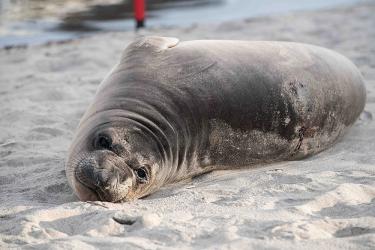We study how toxic chemical contaminants shape the environmental health and sustainability of NOAA trust resources at biological scales ranging from gene expression to the dynamics of wild populations and aquatic communities. The Northwest Fisheries Science Center’s Ecotoxicology Program has continuously conducted ocean pollution research for 50 years, serving as a national scientific support team within NOAA since the early 1970s.
How Our Research is Used
The results of our research are used to:
- Assess the impacts of non-point source pollution (e.g., toxic urban runoff) on salmon and their habitats.
- Determine injury to aquatic natural resources following major oil spills or the cleanup of historically polluted industrial sites.
- Evaluate risks associated with emerging chemical contaminants.
- Anticipate the interacting effects of contaminants and other major habitat stressors, including climate change.
Research Areas
- Urban stormwater runoff, including green infrastructure mitigation effectiveness
- Oil spills
- Modern pesticides
- Historical industrial pollutants
- Emerging contaminants





